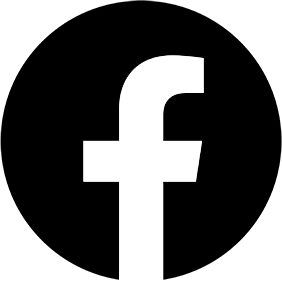
In today’s business landscape, adhering to regulatory standards is crucial for any company’s success and reputation. As Warren Buffet once said, “It takes twenty years to build a reputation and five minutes to ruin it.” Non-compliance can have severe consequences, leading to financial losses, legal troubles, and damage to a company’s image. Understanding the meaning of non-compliance in regulatory standards and its implications in various industries is essential for businesses to maintain compliance effectively.
Exploring the Implications of Non-compliance in Business Operations
Implications of non-compliance in business operations can lead to a host of negative consequences, impacting both short-term and long-term prospects. One of the immediate implications is the risk of facing legal ramifications and financial penalties. Companies found noncompliant with regulatory standards may be subjected to fines, lawsuits, or even forced closures. Moreover, non-compliance can tarnish a company’s reputation, eroding customer trust and loyalty. As news of non-compliance spreads, it can also deter potential investors and partners from engaging with the company. Additionally, non-compliance may hinder access to certain markets or business opportunities, limiting the company’s growth prospects. Understanding the implications of non-compliance underscores the importance of implementing effective compliance strategies to safeguard business operations and preserve a positive brand image.
What is the definition of Non-compliance?
At its core, non-compliance refers to the company’s regulatory compliance failure to meet the established standards governing its operations. These standards may be set by government bodies, industry-specific regulations, or even internal policies. The implications of non-compliance can be far-reaching, affecting not only the company but also its stakeholders and the broader community.
Types of Non-compliance in Different Industries
Non-compliance issues can vary significantly depending on the industry in question. For instance, in the healthcare sector, non-compliance may involve failing to meet patient data privacy requirements, while in the manufacturing industry, it could relate to safety regulations and quality standards. Identifying the specific types of non-compliance prevalent in each industry is crucial for developing targeted corrective measures.

Data compliance is no simple task. Rather than engage in lengthy data democratization efforts or phase out problematic technologies, some brands may be tempted to ignore this privacy-first culture shift, continue to do business as usual, and eat the fine. However, brands must consider the less obvious, hidden costs of non-compliance:
Data security compliance doesn’t just protect consumers, but brands as well. When brands fail to meet compliance regulations, they make themselves more vulnerable to risks and threats, which can lead to data breaches. A recent IBM study found data breaches cost brands with compliance failures $2.3 million more per incident than data security-compliant brands.
Factors Contributing to Non-compliance Issues
Several factors can contribute to non-compliance within a company. These might include inadequate training of employees, lack of awareness about regulatory changes, or even deliberate attempts to cut corners and save costs. Addressing these underlying factors is essential for creating a compliance-oriented organizational culture. As Paul Koziarz, President and General Manager of Regulatory Compliance at CSI, once said: “You have to evaluate compliance not as an expense, but as a money saver. Sure, managing compliance takes resources, but it’s nowhere near as expensive as the costs associated with a breach.”
Consequences and Corrective Measures for Non-compliance

Regulatory violations can have serious consequences for businesses, ranging from legal penalties for non-compliance to reputational damage. When companies fail to meet established regulations, they may face hefty fines, suspension of operations, and even criminal charges. To address non-compliance issues effectively, proactive corrective measures are crucial. Implementing corrective measures for non-compliance issues involves conducting internal audits, establishing clear policies and procedures, and providing continuous training to employees. Additionally, designating compliance officers to oversee adherence to regulations can play a pivotal role in ensuring a compliant organizational culture. By taking swift and targeted corrective actions, companies can mitigate the negative non-compliance consequences and safeguard their operations and reputation.
Legal Ramifications of Non-compliance
non-compliance with regulatory standards can expose a company to various legal risks and penalties. Depending on the severity of the violation, non-compliance consequences and legal ramifications can range from fines to suspension of business operations or even criminal charges for those responsible. Therefore, understanding and abiding by the applicable laws and regulations is imperative for any business. Let’s talk about
Financial Implications of Non-compliance
The financial repercussions of non-compliance can be substantial. Beyond the immediate fines and penalties, non-compliance can result in long-term financial losses due to damaged reputation, loss of customers, and potential legal battles. Implementing robust compliance measures can mitigate these risks and safeguard the company’s financial stability.
In 2018, non-compliant companies were subject to $3.945 billion in penalties and another $794 million in judgments related to SEC investigations and complaints. In addition, FINRA imposed $61 million in fines.
Corrective Measures to Address Non-compliance
To rectify non-compliance issues, businesses must adopt proactive approaches. Conducting internal audits, establishing clear policies and procedures, and providing ongoing training to employees are some effective strategies. Additionally, appointing compliance officers to oversee adherence to regulations can be instrumental in maintaining compliance.
Strategies for Ensuring Compliance
Implementing effective strategies for ensuring compliance and avoiding non-compliance is vital for the success and sustainability of any business. One of the best practices is to stay informed about regulatory changes and requirements, conducting regular risk assessments to identify potential areas of non-compliance. Creating a culture of compliance within the organization, where all employees understand the importance of adhering to regulations, fosters a proactive approach towards meeting standards. Companies can also leverage technology to enhance compliance efforts, using automated tracking systems and data analytics to monitor compliance levels and detect any deviations promptly.
Establishing clear policies and procedures, along with continuous training for employees, ensures everyone is equipped to navigate the complexities of regulatory standards compliance. By embracing these strategies and maintaining a keen focus on compliance, businesses can mitigate risks, build trust with stakeholders, and thrive in a highly regulated environment.
Best Practices for Maintaining Regulatory Compliance
Staying compliant with ever-changing regulations requires a dynamic approach. Companies should stay updated on regulatory changes, conduct regular risk assessments, and develop a culture that prioritizes compliance at all levels. Moreover, fostering transparency and accountability within the organization promotes compliance awareness among employees.
Effective compliance hinges on a company’s capacity to efficiently manage, distribute, and monitor all its policies and procedures, ensuring employees are well-informed and comprehend them thoroughly. By documenting and formalizing regulatory compliance best practices, companies can provide written guidelines and requirements for employees to acknowledge and endorse. This approach fosters a culture of compliance, promoting clarity and accountability throughout the organization.
Compliance Monitoring and Reporting Mechanisms
Implementing robust monitoring and reporting mechanisms is vital for early detection of non-compliance issues. By tracking key performance indicators and conducting regular assessments, businesses can identify potential problem areas and take timely corrective actions.
The Role of Technology in Enhancing Compliance Efforts
Leveraging technology can significantly streamline compliance efforts. From automated compliance tracking systems to AI-driven risk assessments, technology can provide valuable insights and optimize compliance processes. Embracing innovative solutions can improve efficiency and effectiveness in ensuring adherence to regulatory standards.
In conclusion, understanding non-compliance is essential for businesses to avoid its negative consequences. By proactively implementing corrective measures and strategies for maintaining compliance, companies can protect their reputation, finances, and overall sustainability. Embracing a culture of compliance will not only benefit the organization but also foster trust and loyalty among stakeholders, ultimately leading to long-term success in today’s highly regulated business environment.
How Nimonik Supports Businesses in Addressing Non-compliance Challenges
Nimonik is a valuable solution that can help businesses effectively address non-compliance challenges and maintain regulatory adherence. As a comprehensive compliance software platform, Nimonik offers a range of tools and resources to support businesses in various industries. Through automated tracking and reporting features, Nimonik helps organizations monitor their compliance levels, identify potential non-compliance issues, and take timely corrective actions. The platform also provides up-to-date regulatory information, ensuring businesses stay informed about changes and updates that may impact their operations. Take proactive steps towards a compliant future by exploring our compliance software solutions today!
FAQs about non-compliance in regulatory standards
What is non-compliance and how does it impact businesses?
Non-compliance refers to a company’s failure to meet the established regulatory standards that govern its operations. It can impact businesses in various ways, leading to severe consequences like legal penalties, financial losses, and reputational damage.
What are the consequences of non-compliance with regulatory standards?
The consequences of non-compliance with regulatory standards can be significant. Businesses may face hefty fines, legal action, or even suspension of operations. non-compliance can lead to limited market access and hinder business growth.
What are some common types of non-compliance in different industries?
Non-compliance issues in different industries may relate to safety regulations and product quality. The financial industry may face non-compliance related to anti-money laundering regulations. The healthcare sector may involve mishandling patient data privacy.
What steps can businesses take to address non-compliance issues?
To address non-compliance issues effectively, businesses can take several proactive steps: conduct regular internal audits, establish clear policies and procedures, and provide continuous training to employees.
How can technology help in ensuring compliance and preventing non-compliance?
Technology plays a crucial role in ensuring compliance and preventing non-compliance. Automated tracking systems can monitor compliance levels and detect deviations in real-time, enabling swift corrective action. Data analytics can provide valuable insights into compliance performance and potential risk areas.







